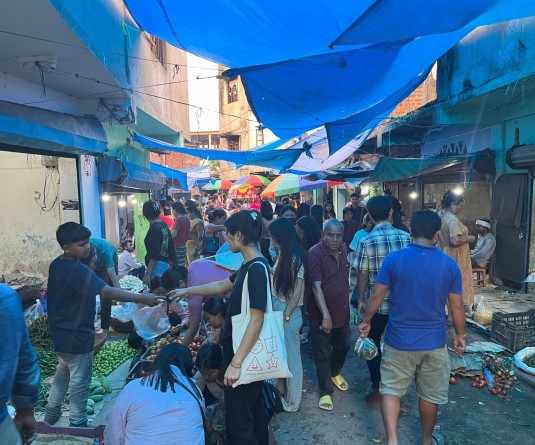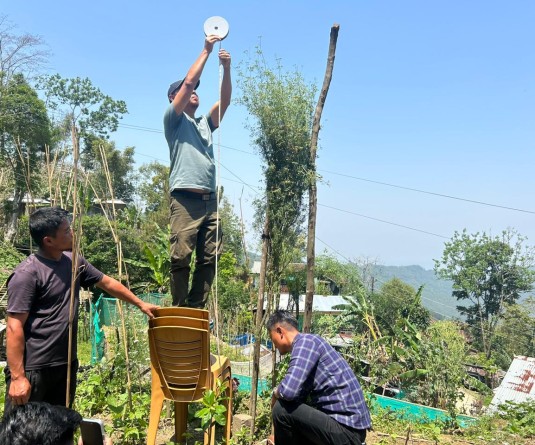
Morung Express News
Dimapur | August 5
Picture this: a woman in the house wakes up, makes fire, prepares tea, soaks vegetables, washes rice, cuts meat, puts in pot, sweeps the house as the food cooks, puts clothes to wash, wakes children up, makes them tea, washes dishes, feeds the children, dresses them for school, drops them to school, puts washed clothes to dry, visits an ailing relative, helps another mother take her child for medical checks, buys grocery, picks up children from school, tends to the kitchen garden, prepares dinner.
These are just the highlights. Women managing households generally put in a lot more labour but spend a lifetime without this labour acknowledged and paid for. Any personal wealth is dependent on the husband’s earning. Women remain in poverty.
Some are able to enter the informal market with small produce from their fields but cannot become financially secure, leaving them in a high risk position in society. “This has led to an increase in cases of trafficking, domestic abuse, sexual exploitation within the family, teenage pregnancy, illegal adoptions etc. We need to get to the root of these issues,” said N Keny, a member of the Naga Indigenous Women Network, Nagaland (NIWN).
She was speaking at a two-day consultation and focus group discussion of women leaders in Nagaland organized by NIWN in collaboration with Women in Governance—North East on August 4-5 at Don Bosco’s AIDA Centre.
Undervalued, when women put in a word into decision making process within the family, clan, village, or in Nagaland’s case even the State, she is told to keep mum and remember her place. “Don’t be oversmart” is a common adage women grow old with.
“Gender roles and functions are structured in our society. This seeps into governance and hampers the progress of the women’s community,” explained Ela Mary, another member of the NIWN.
Women have never been a member of the Nagaland Legislative Assembly to date and they are rarely allowed to make more than tea/food at micro governance units.
“There are few women or men who have taught us about political decision making. We have always been kept out so how are we to know what happens during such decision making in the first place?” wondered Nungshirenla Aier, President of Naga Women Hoho, Dimapur.
Without the “armour of awareness,” she maintained, women are “stuck” in the cycle of household labour without being able to mobilize and organize publicly, effectively and collectively to push women into governance.
“Even when talking about jobs for our children, we often have our boys in mind and completely ignore supporting and encouraging our girls in that direction,” observed Khesheli Chishi who set up the Network in 2015. She found that the support of even a few good men can take women forward in leaps; but women need to come together and encourage other women to go beyond structural roadblocks.
The NIWN is a voluntary network that seeks to raise awareness to empower the indigenous identity of women at the grassroots. The Network will do this through documentation, capacity building, inter-community dialogue and forging alliances that reach out to a cross section of women in society. It will build women leaders who can speak up even at international platforms.
“Women often do not have access to enough information to be able to understand specific issues; this brings apprehension to speak up about the issues, and eventually hinders action,” said Ela Mary, noting education to be the first step towards any future action.
The NIWN will draw from these consultations to chart a way forward for indigenous women in Nagaland to rise, and become empowered and equal citizens.




